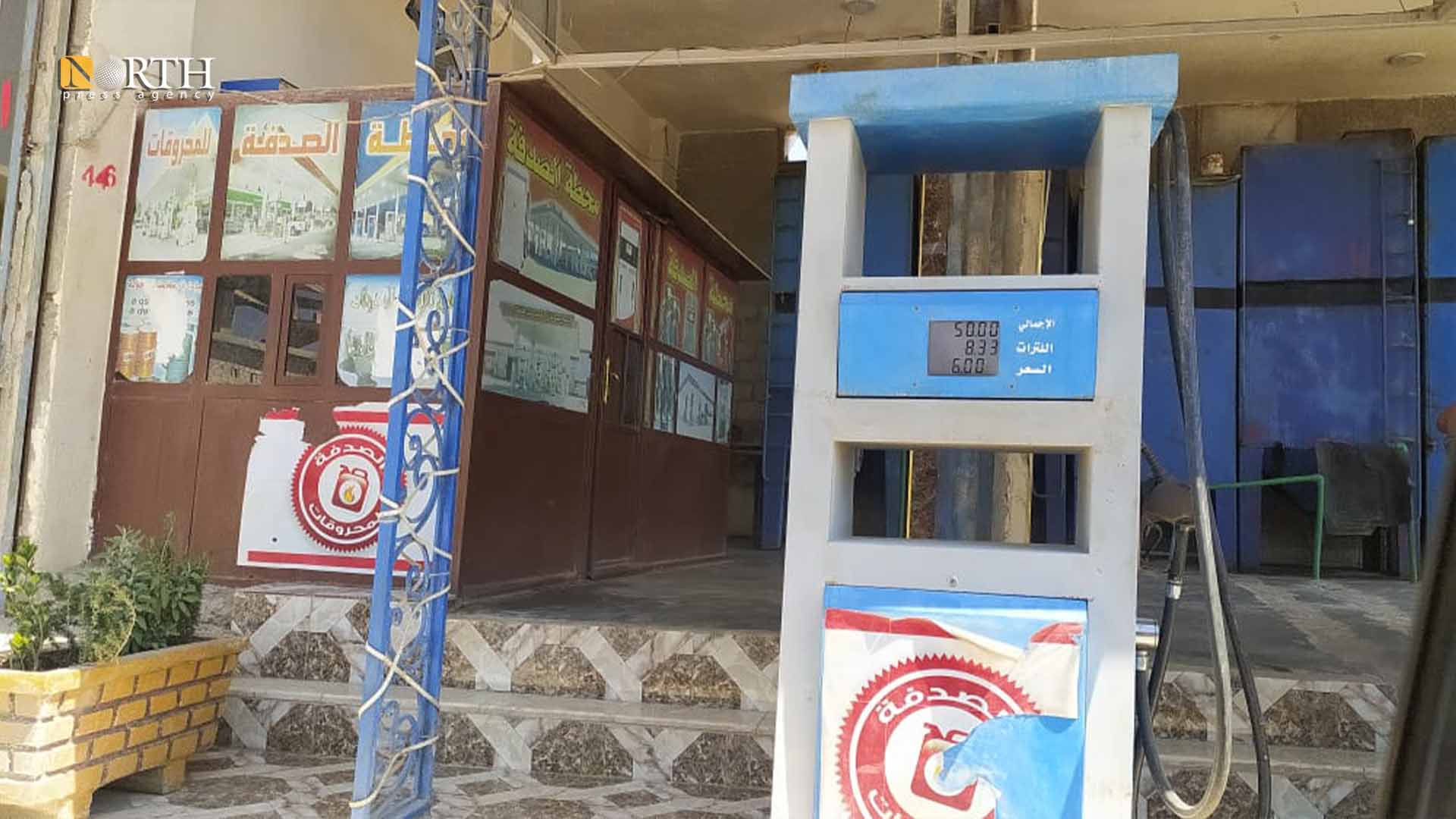High fuel prices in black market, unstable prices at stations in Syria’s Azaz
AZAZ, Syria (North Press) – Musab Osman (a pseudonym), a farmer from the city of Azaz in the northern countryside of Aleppo, is forced to purchase diesel fuel from the black market to operate his generator and water his orchard.
The amount of fuel consumed in drawing groundwater to irrigate the crop costs an amount which Othman says is beyond his ability.
Fuel stations in the city are not able to secure the large quantities that Osman needs on a daily basis to operate the generator and draw water, which forces him to buy fuel from the black market.
Azaz has about ten gas stations distributed in and around the city, most of which are owned by residents of the city and the displaced.
Fuel shortage in some stations and the suspension of work in others forces the residents to buy from the stalls scattered throughout the city and the stores that sell fuel.
This trade is openly spread in a number of Azaz’s neighborhoods and the roads connecting to and from the city, in addition to its spread on the public roads linking Azaz with other cities held by Turkish forces and their affiliated armed opposition groups.
Osman accused the owners of the stations of selling fuel at high prices, “which leads to a rise in the prices of vegetables in the markets and reduces our profits from agricultural projects.”
A liter of gasoline at gas stations is 6.60 Turkish liras (approximately 2310 Syrian pound), while a liter is sold at stalls and shops (black market) for 8 Turkish pounds (approximately 2,800 SYP).
A liter of diesel is sold at stations for 6.10 (2,135 SYP), while its price on the black market is 7 Turkish Liras (2,450 SYP).
However, Hazem al-Rahmoun (a pseudonym), a fuel seller in the outskirts of a city, attributed the reason for the high price in stores to waste of fuel.
He pointed out that he buys a barrel of gasoline from one of the stations in the city, but the barrel remains for about half a month or more due to the small number of people who buy from him, and during this period the gasoline evaporates to the heat.
“As a result of the evaporation of gasoline, my loss in the end is about five liters per barrel, and this loss must be compensated by an increase in the price to guarantee profit,” he added.
Al-Rahman uses an old weight balance scale which is different from what is used at fuel stations. “The station uses a petrol pump, which is digital and calculates every pound and every drop leaving its tank, unlike the scale, which may increase or decrease due to its inaccuracy.”
Daher al-Asmar (pseudonym), a displaced person from rural Hama who ran out of fuel in the outskirts of Azaz, had no choice but to push his motorbike to the nearest fuel store and fill it up to complete his journey home.
Al-Asmar said that he was surprised by the price in the shop, as he paid over 500 SYP more than what he used to pay at the stations.
He also accused the owners of stores and stalls that sell fuel of manipulating prices as they wish.
Majd Irfan (a pseudonym), owner of a gas station in Azaz, said that selling in shops and stalls is not regulated, and they raise the prices due to the low turnout by residents, unlike the stations which have large quantities because most residents fill up there.
However, residents and displaced people in Azaz told North Press that the selling price, even in the stations, is not fixed and is constantly rising.
And last Monday, the price of a liter of regular gasoline was 6.60 Turkish liras and the price of European diesel was 6.10 Turkish liras, while the price of a liter of processed diesel was 4.10 Turkish liras.
The owners of gas stations attributed the reason to the deterioration of the value of the Turkish lira and its instability against the dollar, as the exchange rate approached the level of 8.80 against one US dollar.

